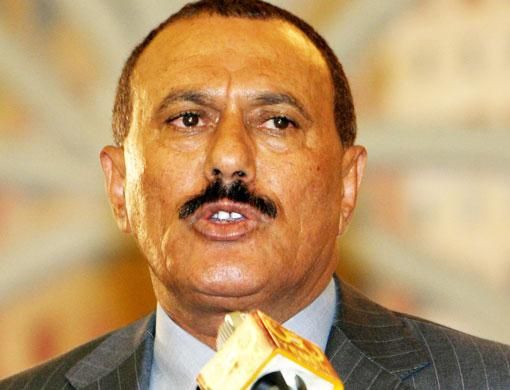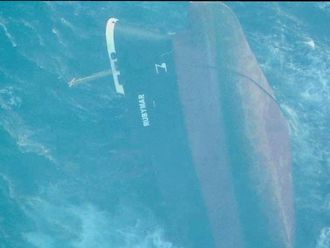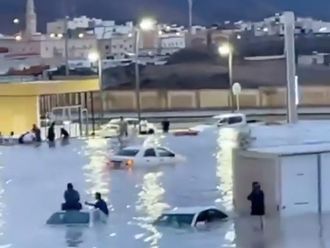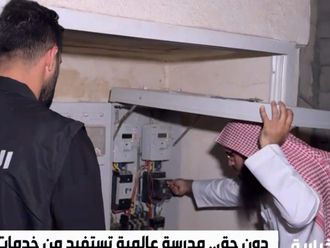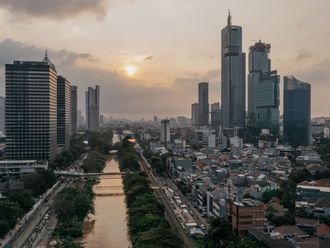Sanaa: Yemen's President Ali Abdullah Saleh has said his country will use nuclear energy to cover the shortage of electricity in Yemen in cooperation with the United States and Canada.
"We will generate electric energy from nuclear energy in cooperation with the United States and Canada," said Saleh in an iftar banquet held at the Republican Palace on Monday.
The event is an annual tradition during Ramadan.
"In the first stage, we will generate 20,000 mega watts, this is no longer election propaganda, it is serious," Saleh told his invited audience, which included religious scholars, state and government officials, tribal shaikhs and social figures. However, the leaders of the Joint Meeting Parties (JMPs), the opposition alliance, did not attend.
President Saleh also said the government would work on finding solutions for the scarcity of water in some Yemeni cities. "One of the biggest problems we are facing now is the water scarcity, I would urge citizens to organise and rationalise the use of water because this issue has become a big problem and there should be awareness programmes about it.
"Searches are underway and negotiations are going on with a number of friendly countries for desalination of sea water for drinking purposes, not for irrigation, to solve the water scarcity problem in Sanaa, Taiz and other cities," he said.
Saleh criticised using large quantities of water for qat plantations, calling upon the concerned bodies to organise awareness programmes to educate people in general and youngsters in particular about the harmful effects of qat.
"About 35 to 40 per cent of water goes on qat irrigation, so people need to be aware how to preserve water and spreading awareness is the responsibility of all.
"It's too difficult to abolish this plant, but treatment of this issue should be gradual, by reducing it, and by educating people about it. Fathers and mothers have to educate their children to give up the habit of chewing it," he added.
Saleh pointed out the qat habit is one of the reasons behind corruption.
"There are many people getting paid about 20,000 Yemeni rials (Dh400) as a monthly salary and they pay about 5,000 rials daily (Dh100) for qat, where does this money comes from?"
He said people must be breaking the law in one way or another to obtain the money for qat.
Fighting corruption
Saleh also pointed out the deteriorating situation in Iraq and Somalia saying that Yemeni people supported "security and stability" by voting for him in the last presidential elections.
Saleh said his party, the General People's Congress, (GPC), would fulfil all its promises it gave to voters and the government would draw a detailed plan to translate his election programme into reality. He said fighting corruption would be his top priority.


